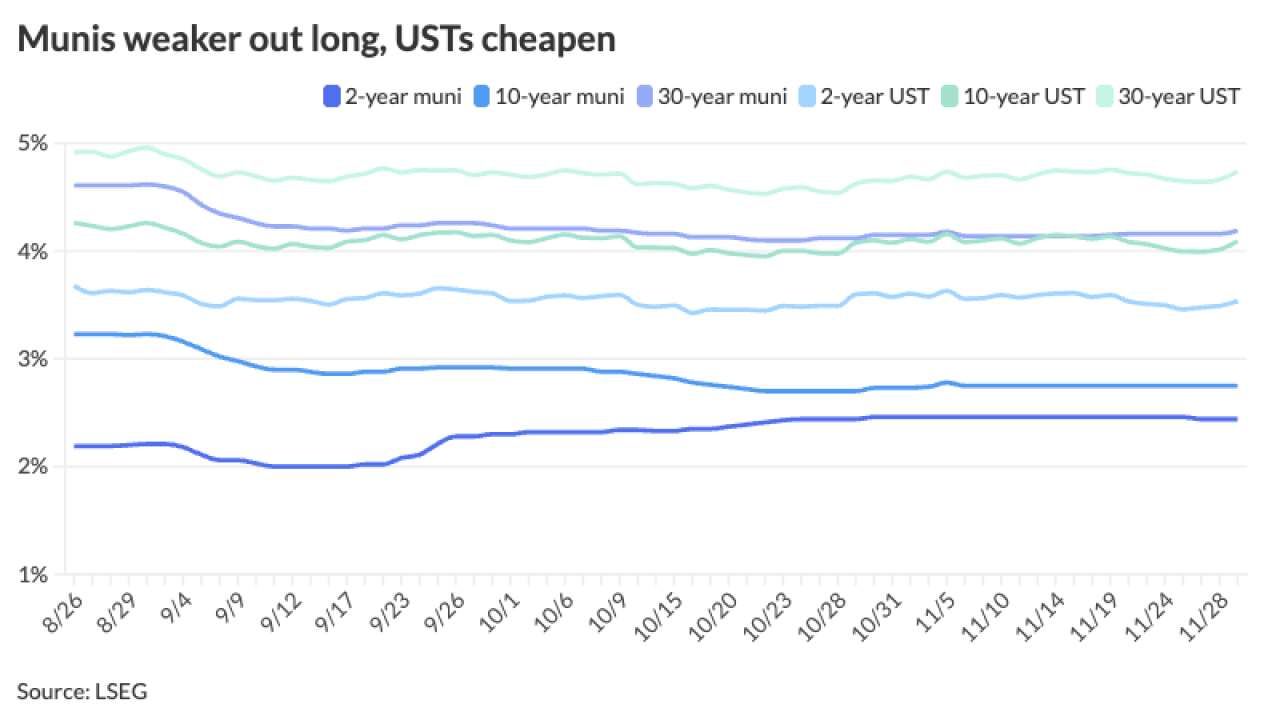
WASHINGTON — Fearful that the federal government may exercise more control over Puerto Rico, the commonwealth's governor lashed out at a federal government court brief that he said undermines Puerto Rico's right to self-government.
Gov. Alejandro García Padilla sent identical letters to United Nations Secretary General Ban Ki-Moon and President Obama criticizing an amicus brief Solicitor General Donald Verrilli filed with the United States Supreme Court.
The brief was filed in the case Puerto Rico v. Sanchez Valle, which hinges on whether Puerto Rico and the federal government are separate sovereigns for purposes of the U.S. Constitution's double jeopardy clause.
Verrilli argues that Puerto Rico's transition to self-government between 1950 and 1952 did not change its constitutional status as a U.S. territory or give the territory sovereignty.
"The United States did not cede its sovereignty over Puerto Rico, and Puerto Rico did not become a state or an independent nation," Verrilli argued in his brief. "Rather, Congress, in an exercise of its authority under the territory clause, authorized Puerto Rico to pursue self-government, under which local officials would exercise power under a framework approved by Congress… Puerto Rico's authority to issue its constitution emanated from Congress, and the constitution could not become effective without congressional approval."
He added a variety of examples since 1952 of the executive branch and Supreme Court backing the idea that Puerto Rico is a self-governing territory, but not sovereign.
In his letters, García Padilla said Verrilli's views in the brief are "misguided and should not prevail in the Supreme Court." The governor pointed to U.S. communications with the U.N. at the time of Puerto Rico's transition to self-government that said the transition changed the constitutional position and status of Puerto Rico.
The governor said that in 1950 the U.S. Congress gave the right to Puerto Ricans to govern themselves by passing a law granting them the "principal of government by consent."
"There can be no such thing as meaningful self-government by the people of Puerto Rico under the U.S. Constitution: the only options are to be a colony subject to the plenary power of Congress, a state, or an independent nation," García Padilla wrote.
The statements from García Padilla, who is deeply unpopular on the island and will not seek re-election, follow his political belief that Puerto Rico exists as a commonwealth that operates with sovereignty from the U.S. on local matters, according to a source who follows Puerto Rico. But Puerto Ricans increasingly do not share that view, the source said.
Congress passed a law in 2014 that would lend federal help to set up a popular vote in Puerto Rico on its future status, but there is currently no vote scheduled and García Padilla has instead put his focus on pushing Congress to give the island a solution to its nearly $72 billion debt crisis.
"The status is the real problem and the debt, deficit, and the economy are symptoms and consequences of status. Garcia Padilla has been denying that," the source following Puerto Rico said.
Some legislators, including Sen. Ron Wyden, D-Ore., have pointed to the 2014 popular vote law as a strong way to resolve the territory's crises. Sen. Chuck Grassley, R-Iowa, has not referred to a Puerto Rico citizen vote, but has consistently said that the fiscal problems on the island extend much further than bankruptcy.
Several Republicans in Congress have talked about initiating a control board for Puerto Rico, effectively ending local control over the commonwealth's government, at least temporarily.
Chapter 9 bankruptcy, which García Padilla has told Congress is necessary, is available under federal law to governments below the state level. Chapter 9, if extended, would be a venue in which Puerto Rico's public authorities could restructure their debt.
If Puerto Ricans were to vote for statehood or independence, the debate in Congress over extending the Chapter 9 provision and others would be moot. Some advocates for statehood point to this fact in saying that statehood would be a long-term solution for dealing with the island's debt problem.
The governor's response in the letter does run somewhat counter to his calls to Congress on the debt crisis, because he wants it to use its authority to aid the commonwealth.
"It is odd they would hold they are sovereign but are asking Congress for Chapter 9 and other relief," said Douglas Holtz-Eakin, president of the American Action Forum and the former director of the Congressional Budget Office.
Puerto Rico Senate President Eduardo Bhatia Gautier said on Sunday that he, like García Padilla, disagrees with the U.S. Department of Justice when it claims that Puerto Rico's status as a "freely associated state" or "commonwealth" is invalid and illegal in the Constitution.
"A few days ago I said that the next five months would be the most intense that Puerto Rico had experienced in decades and I'd focus on them with all my heart. I meant not only the acute fiscal crisis we face but also the political relationship between Puerto Rico and the United States," Bhatia Gautier said.
Bhatia Gautier is in García Padilla's Popular Democratic Party.
The PDP is one of the two main political parties in Puerto Rico. Its primary difference with the New Progressive Party is that it advocates commonwealth status, whereas the NPP advocates statehood.
"The expressions and recent actions of the federal government — both in Congress and from the White House — cause Puerto Rico to finally awaken to an existential reality, crude and imminent," Bhatia Gautier said.
On Monday one of the NPP's two candidates for governor, Ricky Rossell-,





